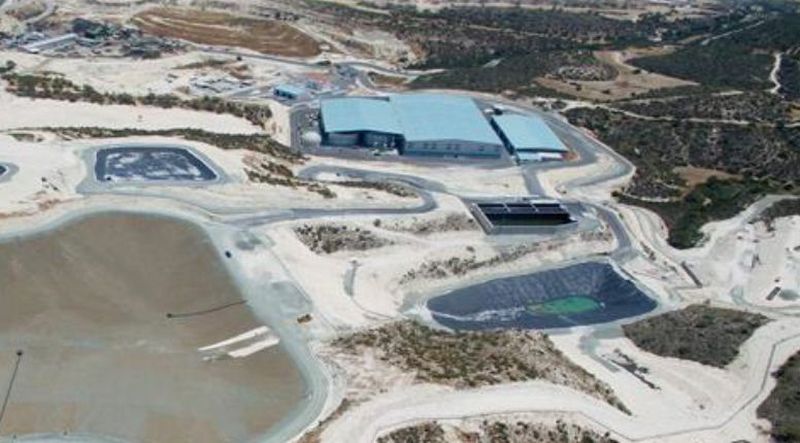Fraud investigations into a €46 million waste treatment project have shifted to Brussels but seem to be going nowhere, as the EU, which funded the project, remains uncertain about who is responsible for the scandal.
Medcon & DB Technologies JV, the contractor for the waste treatment plant in Pentakomo – currently suing the Republic of Cyprus – received conflicting messages from Brussels after inquiring about the department responsible for monitoring the use of EU funds in Cyprus and enforcing the recommendations of the EU’s anti-fraud unit.
An investigation by Politico revealed that several Cypriot ministries had been held accountable by an independent domestic inquiry. Additionally, OLAF, the European Commission’s anti-fraud office, conducted its own investigation in 2021 and forwarded a report to the Directorate-General for Regional Development (DG REGIO), which had overseen the project’s funding back in 2015.
According to the letters cited by Politico, OLAF maintained that DG REGIO also had the authority to grant the company private access to the report.
But DG REGIO has denied this, arguing it is up to member states to address fraud cases themselves – even when EU money is on the line.
The department “does not have the competence to adopt follow-up measures regarding the individuals or entities involved in OLAF’s investigations”, the letter states, because “tasks relating to budget implementation are delegated to member states.”
This has created a complicated situation, given that the Cypriot government is one of the parties involved in the fraud case.
“Medcon & DB Technologies is now stuck in a Kafkaesque maze of European bureaucratic procedure, with little clarity over who in Brussels is handling fraud cases touching the EU budget when member countries’ governments are involved,” Politico reported.
The company told Politico that the situation “casts a dark cloud” over the “effectiveness of EU inter-institutional collaboration” and calls into question the “will to follow through a completed investigation and apportion responsibility for fraud.”
Asked how it looks at the misuse of EU funds, European Commission spokesman for budget Balazs Ujvari told Politico in an emailed statement that while EU countries “are primarily responsible for the sound management of EU funds,” the Commission remains “the ultimate responsible for the execution of the EU budget.”
Regarding the Cohesion Fund, he said the “first level of controls … is under the responsibility of the audit body of the spending Directorate General.”
OLAF would get involved “should any specific suspicions of fraud be identified” and the Commission “closely follows up” by either blocking payments or “clawing back expenditure if the fraud is confirmed,” Ujvari said.
On the specific case, Commission spokesman for cohesion policy and reforms Stefan de Keersmaecker confirmed the Commission was “in close contact with the Cypriot authorities who are actively working to resolve deficiencies identified with the project.”
Since the Cohesion fund is governed by a principle of shared management between Brussels and EU countries, “it is first up to the managing authority” in Cyprus “to correct any irregularities detected and then, if necessary, the Commission,” he added.
There has also been recent speculation about whether former Agriculture Minister, Costas Kadis, should be approved for the position of European Commissioner, as he was reportedly aware of the imminent environmental disaster at the EU-funded Pentakomo plant and allowed waste dumping to continue for five years under his watch.
He is due to be questioned by the European parliament for his hoped-for new oceans and fisheries portfolio on November 6.
The contractor has been accused by the Cypriot government of failing to meet the terms of its contract when operating the plant and was one of the subjects of an investigation by the EU Anti-Fraud Office (OLAF) into the plant.
Now involved in a legal battle with the state of Cyprus, the Cypriot-Canadian joint venture has been requesting the outcomes of that investigation to clear its name.
The company alleges that the Cypriot government withheld information about the project’s feasibility, leading to the illegal burial of thousands of tons of untreated waste. The Cypriot government, however, denies any wrongdoing and maintains that the contractor is at fault.







Click here to change your cookie preferences